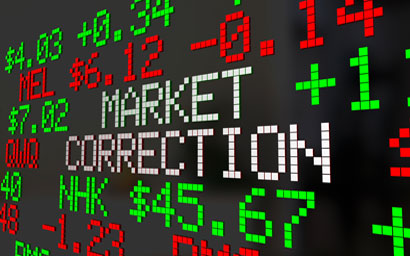Many fixed income investors expect the economic cycle to end in one to two years but without significant correction, research shows.
They have also been increasing allocations to Chinese fixed income, despite geo-political concerns that frequently cite the US-China trade war. Most surprisingly, it is US-based investors that are set to most increase their China bond allocations.
According to Invesco, which surveyed 145 fixed income investors and chief investment officers globally, many of the investors do not foresee a significant correction in fixed income and instead expect the “rare event of a soft landing with a continued flat yield curve”.
Nevertheless, they are positioning portfolios for a variety of possibilities with no particular unifying thread.
With the current economic expansion nearly ten years old and one of the longest on record, Invesco said some investors were nervous about its further longevity and were alert for triggers which could end it. High global debt was cited as the most likely trigger of the next downturn.
Globally, the most common view (49%) amongst fixed income investors was that the end of the cycle is one to two years away (meaning late 2019 through late 2020). However more than a quarter (27%) saw a sooner end, within the next six months to one year.
Wholesale respondents were relatively more pessimistic than institutional investors, with 65% expecting the cycle to end within two years.
Regionally, the study also revealed significant differences in perspectives of fixed income investors across the globe. From an economic-cycle perspective, investors based in Asia Pacific were the most convinced that expansion was on track for the next year or two, while those in Europe, Middle East, Africa (Emea) were the most optimistic that it could well last beyond one to two years.
Those based in North America were less optimistic with over half (52%) believing the expansion will end within a year.
Nick Tolchard, head of Emea for Invesco fixed income, said: “Politics in the US are likely to have contributed to North American fixed income investors’ pessimistic outlook. Elevated rhetoric from the Trump administration regarding trade with China, Europe, Canada, and Mexico, plus actual tariff impositions, have significantly impacted optimism.”
He added that, from a policy and markets perspective, perceptions that the Federal Reserve remained determined to remove policy support, and speculation of the potential for the yield curve to invert, would have added to concerns.
The research found that Investors were planning to maintain fixed income holdings in the search for yield and were taking a more active approach to creating diversification through alternatives, emerging market allocations and investing in China.
Key findings were:
- Half (49%) of respondents expect the economic cycle to last another one to two years, but many North American investors (52%) see the cycle ending earlier
- Almost half (46%) of investors have adjusted portfolio allocations in response to trade wars
- Two thirds (65%) of wholesale investors report that Brexit has altered their European and UK allocations; only 34% of institutional investors had done this
- Fixed income investors are concerned about high levels of debt globally and widening credit spreads
- Chinese fixed income allocations are rising as investors look through geo-political issues
- Fixed income investors are actively repositioning portfolios, building resilience through a variety of strategies that include yield, short duration and floating rate instruments
When asked about triggers of the next downturn, respondents were predominantly concerned with high levels of indebtedness, particularly government debt. Invesco said the focus on debt was unsurprising in the aftermath of record low interest rates for a prolonged period. Investors surveyed believed a rising interest rate environment will have a significant impact on interest costs and default rates.
Other sources of potential disruption were seen as a crisis in emerging markets, followed by a debt bubble in China.
Why is Chinese fixed income exposures on the rise?
A third (32%) of fixed income investors globally intended to increase their allocations to China over the next three years, notably in North America where nearly 60% had this intention yet where investors were currently less likely to hold Chinese fixed income products as part of their portfolio
This is a “significant shift” for a nation that tends to invest predominantly in its own bond markets, Tolchard said.
For 51% of global investors, China is a longer-term strategic decision which will be underpinned by the increased weighting of China in major fixed income indices expected in 2019 and beyond.
Overall, despite a compression in the yield premium that Chinese government bonds have historically offered over US Treasuries, total foreign investment into China’s fixed income market rose rapidly in 2018. China is the world’s third largest bond market but has long been underweight in (or entirely absent from) the fixed income portfolios of professional investors, said Invesco.
Barriers to investing in Chinese fixed income were seen to be reducing, although the main lingering barriers were viewed as being the risk of the asset class, government intervention, and potential restrictions on capital movements.
Tolchard added: “While last year’s relatively unified [survey view] of the ‘new normalization’ scenario largely came to pass, investors are now increasingly uncertain due to the growing list of potential risks, from both a geopolitical and markets perspective. As a result, fixed income investors are actively re-positioning fixed income portfolios to be better positioned to handle a variety of outcomes.
“Interestingly, fixed income investors across the globe are considering a wide variety of portfolio strategies: some are targeting yield; some are seeking the safety of shorter durations or cash in case volatility spikes; and some want the flexibility of floating rate instruments. With there being so many factors consider, it demonstrates how investors need a variety of solutions to deal with the potential risks.”
©2019 funds europe





